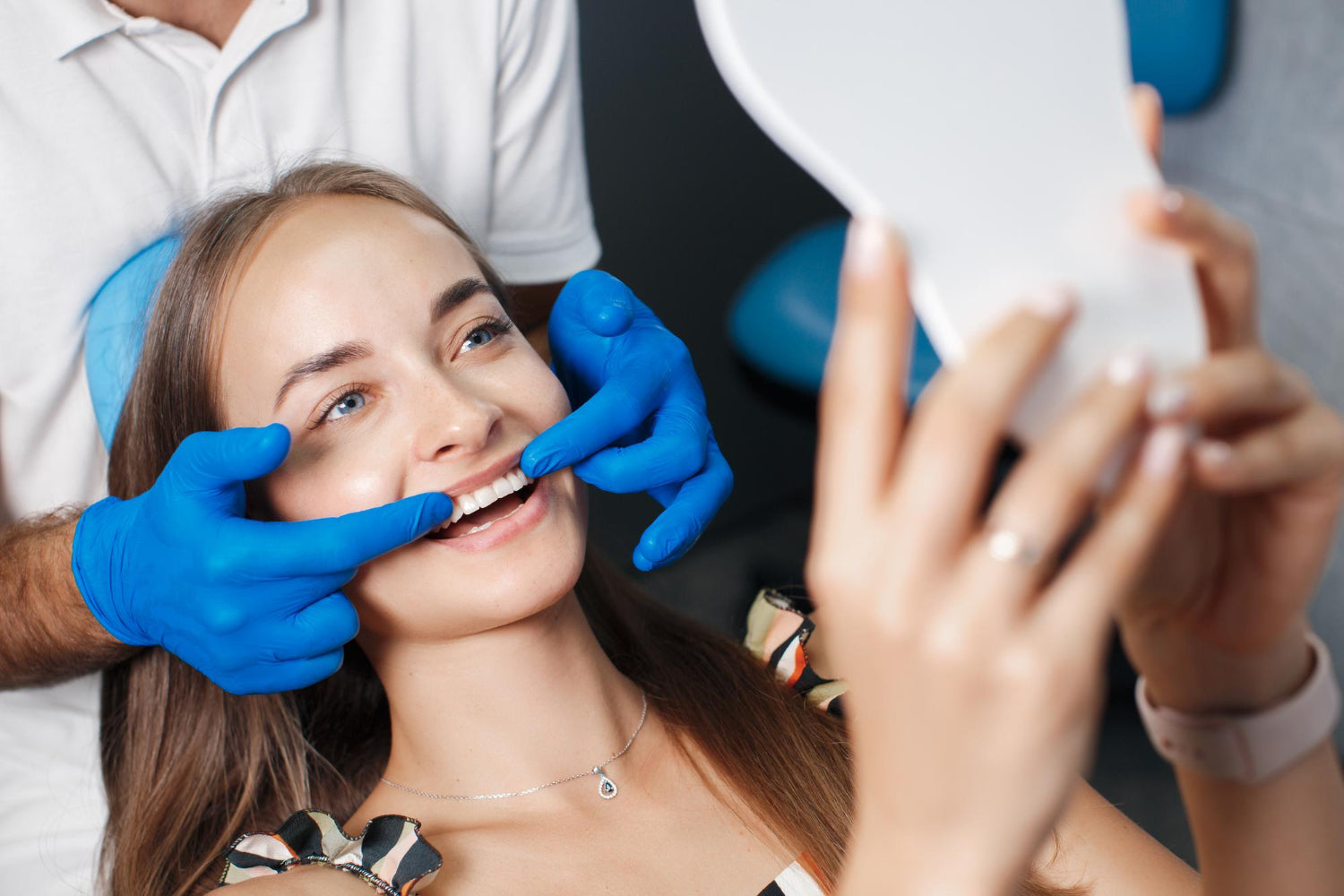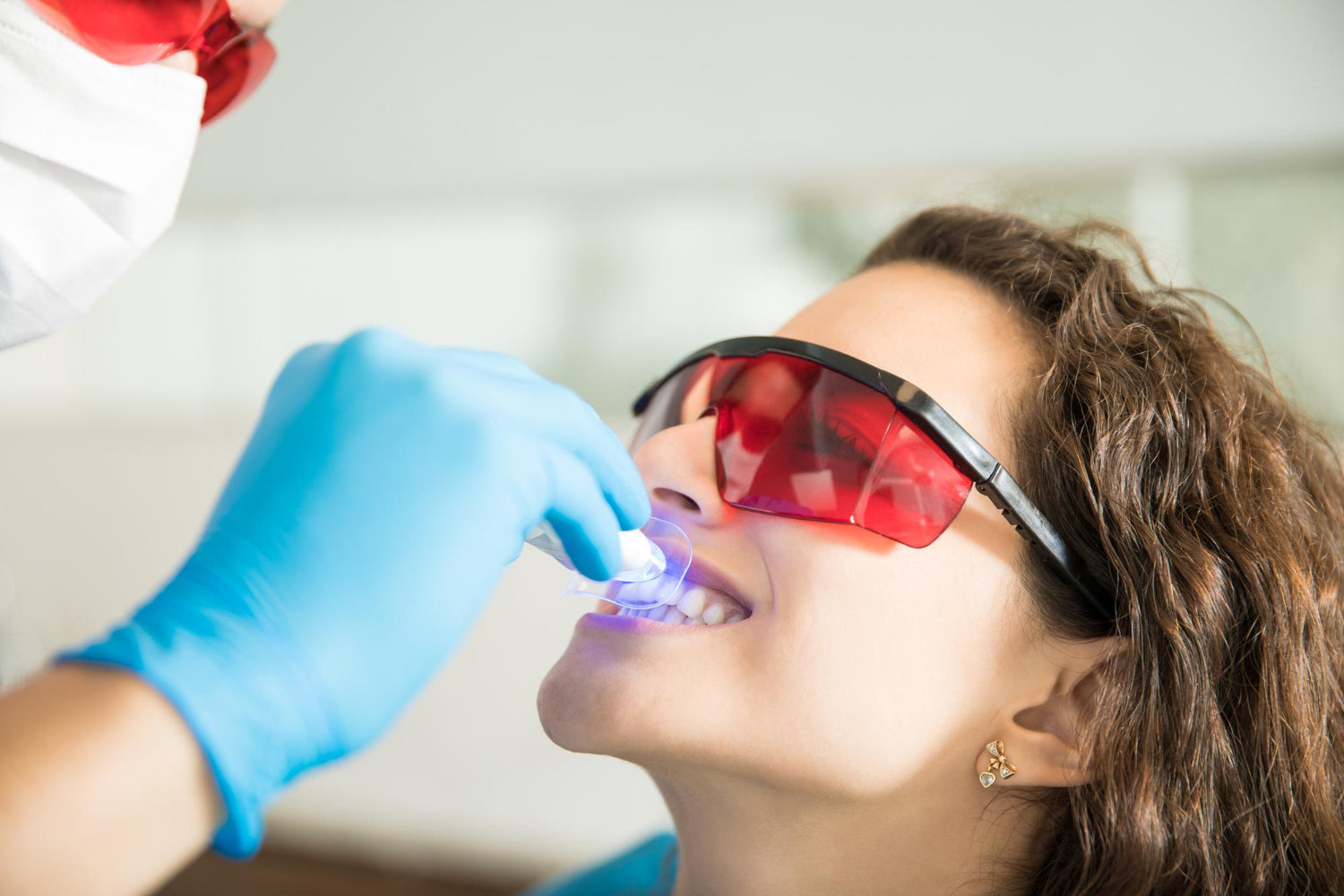A piece of chocolate or a few cookies in between - most people are familiar with cravings for sweets and can't imagine life without sugar. However, most people also know that sugar is harmful to teeth. This is undoubtedly true. For your teeth, it would be best to completely avoid sugar. However, other, less life-changing measures in your oral hygiene can have equally positive effects. Then you can indulge in sugar in moderation now and then without a guilty conscience.
Oral hygiene: Why is sugar harmful to teeth in the first place?
When you eat or drink sugary foods, you create the perfect breeding ground for tooth decay. The bacteria in your mouth digest the food you eat and secrete acid as a metabolic product. The acids attack the tooth enamel and cause tooth decay, which results from the decalcification (demineralization) of the enamel.
Sugar consists of molecules that are easy to cleave and can therefore be easily broken down by almost all bacteria. This is why the bacteria in the mouth are particularly fond of sugar.
Incidentally, sugar is not only found in sweets, but also in supposedly savory foods. These include, above all, convenience foods of all kinds: whether bagged soup or microwave meals: Hardly any convenience food comes without sugar.
Oral hygiene: What can you do against the dangerous acid attacks?
Balanced diet supports oral hygiene
Magnesium, calcium and other minerals promote dental health. Therefore, make sure you eat a balanced diet. Eat as many grains , fruits, vegetables, protein and dairy products as possible to strengthen teeth so they can better withstand an acid attack from sugar.
If you're going to eat sugar, eat it right
For your dental health, it's better to eat a whole bar of chocolate once a day instead of taking a piece every now and then. Regular intake of the sugar encourages the growth of tooth decay bacteria. It is best to eat sweets directly after a main meal, for example as dessert. Afterwards, brush your teeth thoroughly.
Oral hygiene: be careful with sugar-acid combinations
The consumption of sweet and sour foods and drinks is particularly treacherous. This is the case, for example, with fruit juices or cola. The fruit acid contained in fruit juices and the phosphoric acid contained in cola soften and attack tooth enamel. At the same time, the sugar contained in the drinks ensures that the bacteria spread quickly. It is particularly dangerous for dental health if such drinks are drunk throughout the day. Brushing the teeth immediately after consumption is not recommended, because the softened enamel can be literally brushed away. It is better to rinse the mouth with water first and brush the teeth after about 30 minutes.
Fend off acid attacks with careful oral hygiene
Attack is the best defense. This also applies to the acid offensive in your mouth. By brushing your teeth thoroughly after eating sweets, you remove sugary food residues and pre-existing bacteria from your teeth. Use fluoride toothpaste to make your teeth more robust and resistant to harmful acids overall. Daily oral hygiene also includes the use of dental floss, because bacteria like to settle in the interdental spaces that are difficult to reach for the toothbrush. Dental floss ensures clean interdental spaces so that caries cannot develop here either (or only with difficulty). Also pay attention to cleaning the tongue, because sticky foods in particular tend to get stuck there.




Leave a comment
All comments are moderated before being published.
This site is protected by hCaptcha and the hCaptcha Privacy Policy and Terms of Service apply.